
Egon Eiermann was one of Germany's most prominent architects in the second half of the 20th century. He was also a furniture designer. From 1947, he was Professor for architecture at the Technical University of Karlsruhe.
Egon Monk was a German actor, director and author.
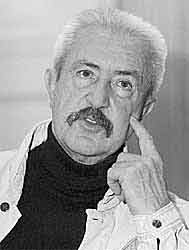
Egon Günther was a German film director and writer.
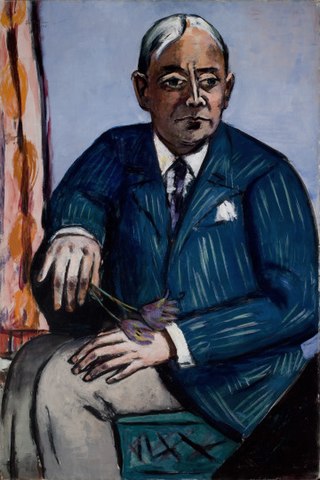
Ludwig Berger was a German-Jewish film director, screenwriter and theatre director. He directed more than 30 films between 1920 and 1969. Berger began working in the German film industry during the Weimar Republic. At Decla-Bioscop and later UFA he established a reputation as a leading director of silent films. He emigrated to Hollywood, but was unable to establish himself and returned to Europe. He subsequently worked both in France and Germany. He was a member of the jury at the 6th Berlin International Film Festival.
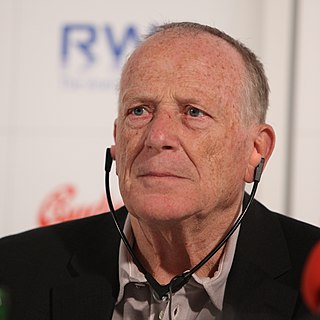
Wolfgang Kohlhaase was a German screenwriter, film director, and writer. He was considered "one of the most important screenwriters in German film history", and was one of the GDR's most well-known and prolific film screenwriters. Kohlhaase was awarded the Honorary Golden Bear at the 2010 Berlin International Film Festival.
The Dress is an East German comedy film directed by Konrad Petzold and Egon Günther. It was released in 1961.

Hannjo Hasse was an East German actor. Over his nearly-four decade career, he was best known for his roles in the films of Le Gangs (1969) and Walter Defends Sarajevo (1972), as well as the television series Rote Mountain Steiger (1968) and Archiv des Todes (1980).
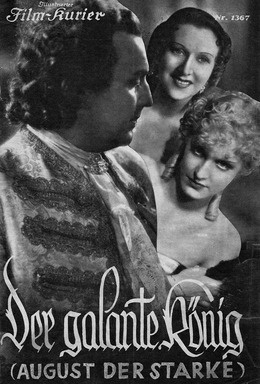
Augustus the Strong is a 1936 German-Polish biographical film directed by Paul Wegener and starring Michael Bohnen, Lil Dagover, and Marieluise Claudius. The film depicts the life of Augustus the Strong, the Eighteenth Century ruler of Saxony and Poland. It was partly shot at the Grunewald Studios in Berlin. The film's sets were designed by the art directors Karl Machus and Ludwig Reiber.
Werner Fuetterer was a German film actor. He appeared in nearly 100 films between 1925 and 1967.
Ralf Kirsten was a German film director and screenwriter. He directed 22 films between 1955 and 1986. His 1984 film Where Others Keep Silent was entered into the 14th Moscow International Film Festival.

The Congress Dances is a 1955 Austrian historical musical film directed by Franz Antel and starring Johanna Matz, Rudolf Prack and Hannelore Bollmann. It is a remake of the 1930 film The Congress Dances, about a romance that takes place during the Congress of Vienna in 1814.
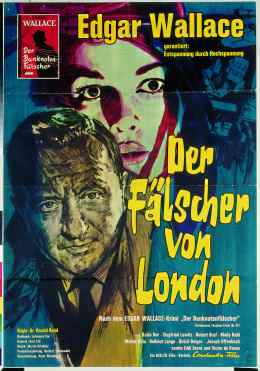
The Forger of London is a 1961 West German crime film directed by Harald Reinl and starring Karin Dor, Hellmut Lange and Siegfried Lowitz. It is an adaptation of Edgar Wallace's 1927 novel The Forger, and part of a long-running series of German Wallace films made during the decade.

Little Girl, Great Fortune is a 1933 German comedy film directed by E. W. Emo and starring Dolly Haas, Carl Esmond, and Adele Sandrock. It was shot at the Johannisthal Studios in Berlin. The film's sets were designed by the art director Fritz Maurischat.A separate Italian version One Night with You was also made.

Decoy is a 1934 German adventure film directed by Hans Steinhoff and starring Jakob Tiedtke, Viktor de Kowa, and Jessie Vihrog. A separate French-language version, The Decoy, was released the following year with a largely different cast. It was shot at the Babelsberg Studios and on location in Hamburg, Turkey and the North Sea. The film's sets were designed by the art directors Artur Günther and Fritz Maurischat.

Men Are That Way is a 1939 German drama film directed by Arthur Maria Rabenalt and starring Hertha Feiler, Hans Söhnker and Hans Olden. The film's sets were designed by the art director Willi Herrmann. It was remade by Rabenalt in Austria as Arena of Fear (1959).

The Cuckoos is a 1949 German comedy drama film directed by Hans Deppe and starring Ina Halley, Rainer Penkert and Carsta Löck. It was shot at the Babelsberg Studios in East Berlin. The film was made in the Soviet Zone, in what would soon become East Germany. The film's sets were designed by the art director Wilhelm Vorwerg.
Traudl Kulikowsky is a former German film actress. Between the mid-1960s and mid-1970s she took prominent roles in a succession of East German cinema and television films.

The Widow's Ball is a 1930 German comedy film directed by Georg Jacoby and starring Lucie Englisch, Fritz Kampers, and Sig Arno.

Different Morals is a 1931 German comedy film directed by Gerhard Lamprecht and starring Walter Rilla, Aribert Wäscher, and Elga Brink. It was shot at the Tempelhof and Staaken Studios in Berlin. The film's sets were designed by the art director Otto Moldenhauer.

The Schimeck Family is a 1935 German comedy film directed by E.W. Emo and starring Hans Moser, Käthe Haack and Hilde Schneider. It was shot at Johannisthal Studios in Berlin. The film's sets were designed by the art directors Karl Böhm and Heinrich Richter. It is based on the play The Schimek Family by Gustaf Kadelburg, previously adapted into a 1926 silent film and later into a 1957 Austrian film.














